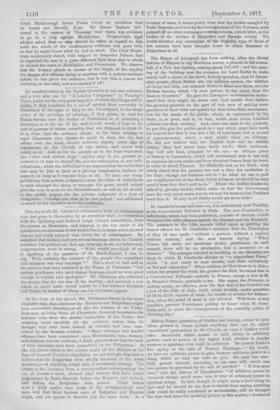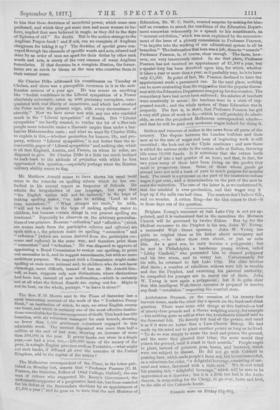Bishop Fraser, preaching at Halifax last Sunday, seems to have
taken ground as broad against anything that can be called ' sacerdotal ' pretensions in the Church, as even a Quaker could take. Sacerdotal claims meant, he said, claims to arbitrary power,—and no power of the higher kind, whether in secular matters or spiritual, ever could be arbitrary. He quoted Burke's fine saying on the trial of Warren Hastings,—" My Lords, we have no arbitrary power to give, because arbitrary power is a thing which no man can hold or give. No man can care- fully govern himself, according to his own will, much less one person be governed by the will of another." "If this were true," said the Bishop of Manchester, " of arbitrary power in temporal things, much more was it true of arbitrary power in spiritual things. In fact, though it might seem a hard thing to say—and lie should be the first to shrink from saying anything that could be really construed as uncharitable, still he thought "the time had come for speaking plainly on this matter,—it seemed to him that these doctrines of sacerdotal power, which some men professed, and which they got some men and more women to be- lieve, implied that men believed in magic, as they did in the days of Ephesus of old." No doubt. But is the notion strange to the Anglican Prayer-book? and if not, can we complain of Anglican -clergymen for taking it up ? The doctrine of special grace con- veyed through the channels of specific words and acts, uttered and done by an order of men set apart for their duties by other such words and acts, is surely of the very essence of many Anglican formularies. If that doctrine be a complete illusion, the formu- laries are as much to blame as the men who construe them in their natnral sense.































 Previous page
Previous page